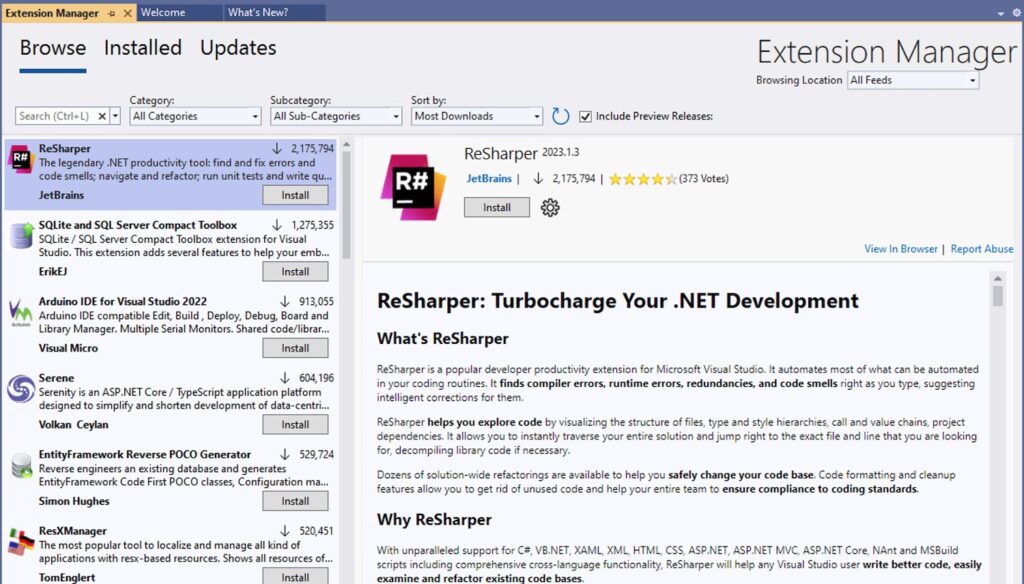
Microsoft has released a further preview of Visual Studio 17.7, the next update to its Windows IDE, with a revamped Extension Manager and an updated HTTP Editor, though this still lacks features found in the VS Code equivalent.
Extensions matter a great deal for IDEs, since they are an opportunity for third parties to provide tooling for their products and services as well as enabling developers to plug gaps in the capabilities of the core product. Visual Studio has long supported extensions, but the existing user interface for discovering and evaluating extensions in the Visual Studio Marketplace is dated and requires clicking a web link to get detail about what the extension does and what other developers think of it.
The new extension manager means “you’ll now be able to learn more about each extension without ever opening a browser” according to senior program Manager Maia Kelner, who works on Visual Studio Extensibility. It is an improvement, with vendors able to show a detailed page of information within Visual Studio, including images and video clips.
Some things though still require the “View in Browser” button, including user reviews. It is still perhaps not quite as good as the extension manage in Visual Studio Code, which for each extension includes tabs for details, feature contributions and changelog.

Another case of catch-up is in the HTTP Editor, which is designed for testing HTTP APIs such as those built with ASP.NET Core. Developers can send web requests and view the results, using different methods such as GET, POST and PUT, and sending headers with authentication data or other values. It is a useful tool, though as the docs state, “the .http file format and editor was inspired by the Visual Studio Code REST Client extension,” but lacks many of the features in the VS Code equivalent, including for example certificate-based authentication.
The new preview updates the HTTP Editor with a new Response View with JSON highlighting and the ability to view the raw response, but it still falls short of the Rest Client extension for VS Code, developed by Huachao Mao, a highly appreciated add-on with over 3.5 million installs and full 5-star rating.
One could of course list other areas where VS Code is no match for Visual Studio, particularly for native Windows application development, and working with C++ or C#. The truth is that many developers will use both.
When can we expect Visual Studio 17.7? The current version of Visual Studio is 17.6, released in May, and new minor releases tend to appear every three months. That would suggest general availability of 17.7 next month.
The big month for Microsoft’s developer tools is November, with .NET 8 – a LTS (Long Term Support) release – scheduled for November 2023. This is likely to be accompanied by Visual Studio 17.8 which will also be a long-term servicing release, since “every even numbered minor version is declared to be an LTSC,” supported for 18 months, according to the documentation. At some point Microsoft will probably start calling it Visual Studio 2024, but we are speculating.
